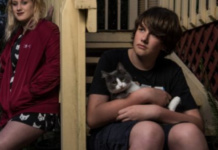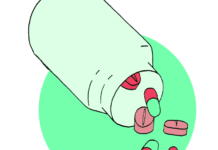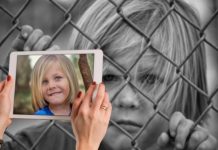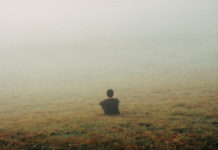J&J Settles With Montana for $5.9M in Risperdal Marketing Lawsuit
Subsidiaries of Johnson & Johnson have agreed to pay $5.9 million to settle Montana's lawsuit over the company's fraudulent marketing of Risperdal. According to...
Update on the Association Between ADHD and Bipolar
Researchers from the MRC Social, Genetic and Developmental Psychiatry Centre of King's College's Institute of Psychiatry in London, publishing in the Journal of Affective...
Psychotropic Drugs and Children
video platformvideo managementvideo solutionsvideo player
Psychotropic Drugs and Children
June 15, 2010
Robert Whitaker, author of Anatomy of an Epidemic, discusses the disturbing effects of psychotropic drugs...
Study Explores Meanings of Bipolar Disorder to Those Diagnosed
The narratives about Bipolar Disorder promoted by drug companies may influence how those diagnosed understand themselves.
SSRI Antidepressants Increase Surgery Risks
There is accumulating evidence that taking SSRI antidepressants increases the risk of bleeding and other complications during surgery, according to a review published in the British Journal of Anaesthesia.
Can Children Have Bipolar Disorder?
After seeing the family for two sessions I came to the conclusion that what Adam was suffering from was inconsistent discipline, temper tantrums and misbehavior that were inadvertently encouraged by his parents. The correct prescription for Adam was not an antipsychotic medication that might cause him harm, but family therapy to help the parents implement a behavioral program that would fit Adam’s needs.
Researchers Call for Reappraisal of Adverse Mental Effects of Antipsychotics, NIDS
In a study published yesterday, researchers from the Nippon Medical School in Tokyo bring attention to a condition known as neuroleptic-induced deficit syndrome (NIDS)...
“Misuse Of ADHD Drugs By Young Adults Drives Rise In ER Visits”
"It's no secret that stimulant medications such as Adderall that are prescribed to treat symptoms of ADHD are sometimes used as 'study drugs' aimed...
Experts Decry Dangerous Use of Antipsychotics in Children
In a featured article for Psychiatric Services, psychiatrists from Dartmouth raise the alarm on the increasing numbers of children prescribed dangerous antipsychotic drugs. Despite the fact that data on the safety of long-term use of these drugs in this vulnerable population “do not exist,” the rate of children and adolescents being prescribed antipsychotic drugs have continued to increase over the past fifteen years.
Different Forms of Childhood Adversity Related to Specific Psychosis Symptoms
In this month’s issue of Psychological Medicine, researchers from King’s College London found evidence for associations between different types of childhood adversity and specific symptoms associated with psychosis. As current categorical approaches to psychosis and schizophrenia diagnoses come under increasing scrutiny, this study adds support to sociological and psychological theories and treatments.
“How Poverty Affects Children’s Brains”
New research is investigating how “poverty reduction promotes cognitive and brain development.”
“Children Today Suffer From a Deficit of Play”
Boston College Psychologist Peter Gray writes for Aeon about the impact of the gradual erosion of children’s’ play in the United States. “Over the...
“California Moves to Stop Misuse of Psychiatric Meds in Foster Care”
On Tuesday, NPR told the story of DeAngelo Cortijo. DeAngelo became a foster kid at age 3 after his mother attempted suicide. He was “diagnosed with bipolar and anxiety disorders, attachment disorder, intermittent explosive disorder or posttraumatic stress disorder,” and was prescribed “a combination of antipsychotics, antidepressants and stimulants, and was told that taking them was his only hope of being normal.” Through equine therapy, DeAngelo was eventually able to get off all of his medication. Now, California is hoping to pass reforms that would prevent foster kids, like DeAngelo, from being “prescribed antipsychotic drugs at double to quadruple the rate of that not in foster care.”
Pressuring Parents to Drug Children
Jim Gottstein on Pressuring Parents to Drug Children
Over 16,000 Australian Children Prescribed Antipsychotics
From The Sydney Morning Herald: New data from Pharmaceutical Benefits Scheme shows that a total of 16,570 Australian toddlers, children, and teens under 17 were...
Primary Care Practitioners May Mistake Irritability as Bipolar Disorder in Youth
Family medicine and pediatric providers are less confident in their assessment of irritability in youth than psychiatric providers, which may lead to overdiagnosis of bipolar disorder.
Searching for Zen and Finding a Cow
If I had a clinical problem, why was something as ancient and simple as meditation helping me? And if normal positive human habits could be so profoundly useful, why the heck was the field marketing pills and “clinical” coping mechanisms to me instead? This frustration helped me jump ship from the medical mindset and hop into the world of humanity.
The Issue of Over-Diagnosing in Psychiatry
From The Concordian: On October 30th, Dr. Joel Paris, a professor of psychiatry at McGill University, gave a lecture about the dangers and consequences of...
Childhood Bipolar Disorder, Deconstructed
Diagnosing children with juvenile or pediatric bipolar disorder is largely an American phenomenon. Do we actually have more “bipolar” children in the United States—or are we simply labeling more of them as such? If it is ever fair to call a child “manic,” isn’t the child’s environment the direction in which we should look?
Book Review: “Overmedicated and Undertreated”
A former pharma executive has broken ranks with the industry in a new book by reporting how multiple psychiatrists, schools, and his desperate hopes pressed him to allow higher and higher doses of antipsychotic medications. The result: his 15-year-old son's death from Seroquel.
Childhood Bipolar Disorder More Rare Than Previously Claimed, Study Finds
Re-examination of meta-analytic claims finds the prevalence of pediatric bipolar disorder is close to zero.
“Drugs, Greed and a Dead Boy”
New York Times columnist, Nicholas Kristof, relates the story of Andrew Francesco, a boy who began taking Ritalin at age five and died from complications with Seroquel when he was fifteen. His father, a former pharmaceutical industry executive, reveals the industry’s greed in his memoir “Overmedicated and Undertreated.” Now the industry is pushing for a first-amendment right to market its drugs for off-label uses.
“Biologism in Psychiatry: A Young Man’s Experience of Being Diagnosed with ‘Pediatric Bipolar Disorder'”
The Journal of Clinical Medicine explores pediatric bipolar disorder through the eyes a young American, whose story "reveals several issues that afflict contemporary psychiatry, particularly in...
Study Suggests Mania More Common in Psychosis When Antidepressants Used
A prospective cohort study of those labeled high risk for psychosis finds a higher prevalence of antidepressant use among those who develop manic symptoms.
In Defense of Healthy Mania
It is important to distinguish, and not simply pathologize, experiences that are manic-like because they are time-honored states of mind associated with aspiration, ambition, and goal-achievement. The need to generate boundless energy, overtalk the issues to sustain single-minded focus and motivation, and have a somewhat grandiose vision of what can be accomplished, combined, can eventuate in a manic mix of tendencies necessary to bring higher-order goals to fruition.



















